‘People think phones are disruptive in concerts – but it’s never a young person’s that rings loudly’
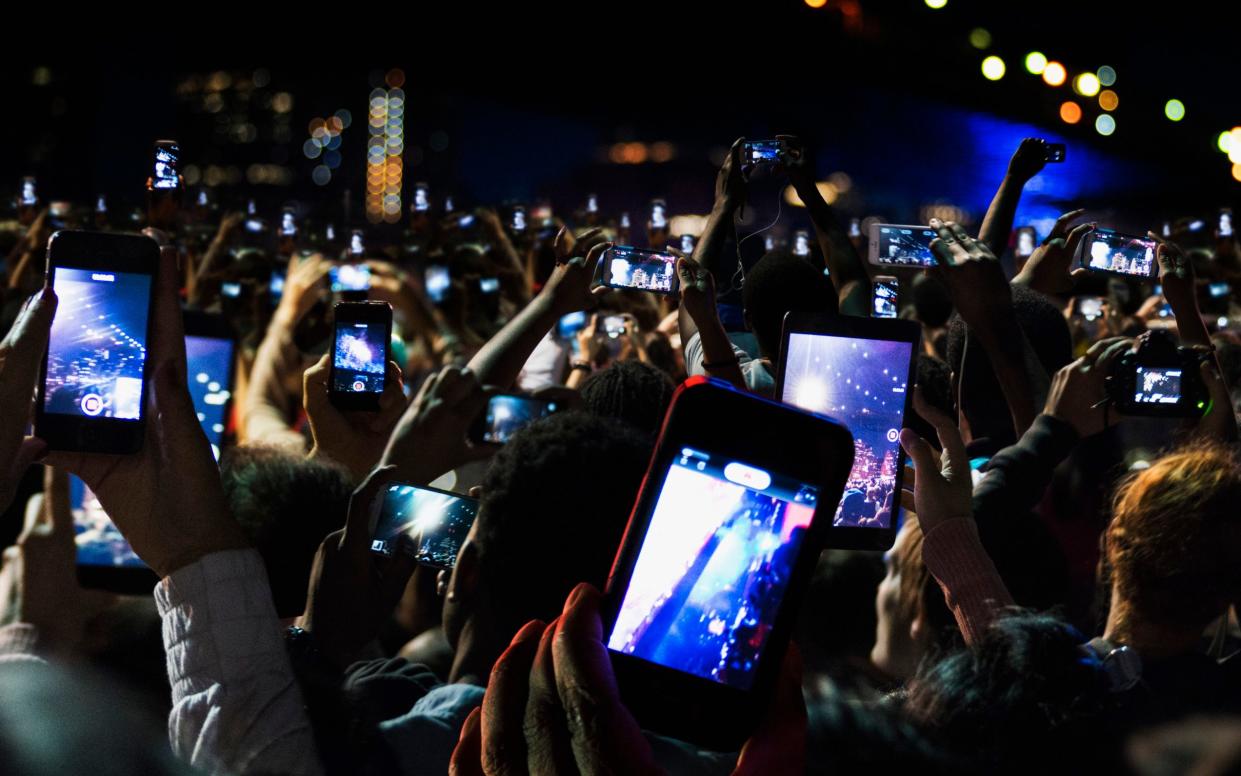
“Older people need to accept that we now live in a world where people want to take out their phones to take pictures or make videos when they see something they like,” says the violinist Esther Abrami. At a time when orchestras are fighting for survival in the UK, the 26-year-old virtuoso has used social media to attract thousands of younger people into concert halls where debate over the use of mobile phones during performances is causing friction between generations.
The discussion has been brought sharply into focus after renowned tenor Ian Bostridge recently halted a performance of Benjamin Britten’s Les Illuminations at Birmingham Symphony Hall last month to call out audience members using their phones during the concert.
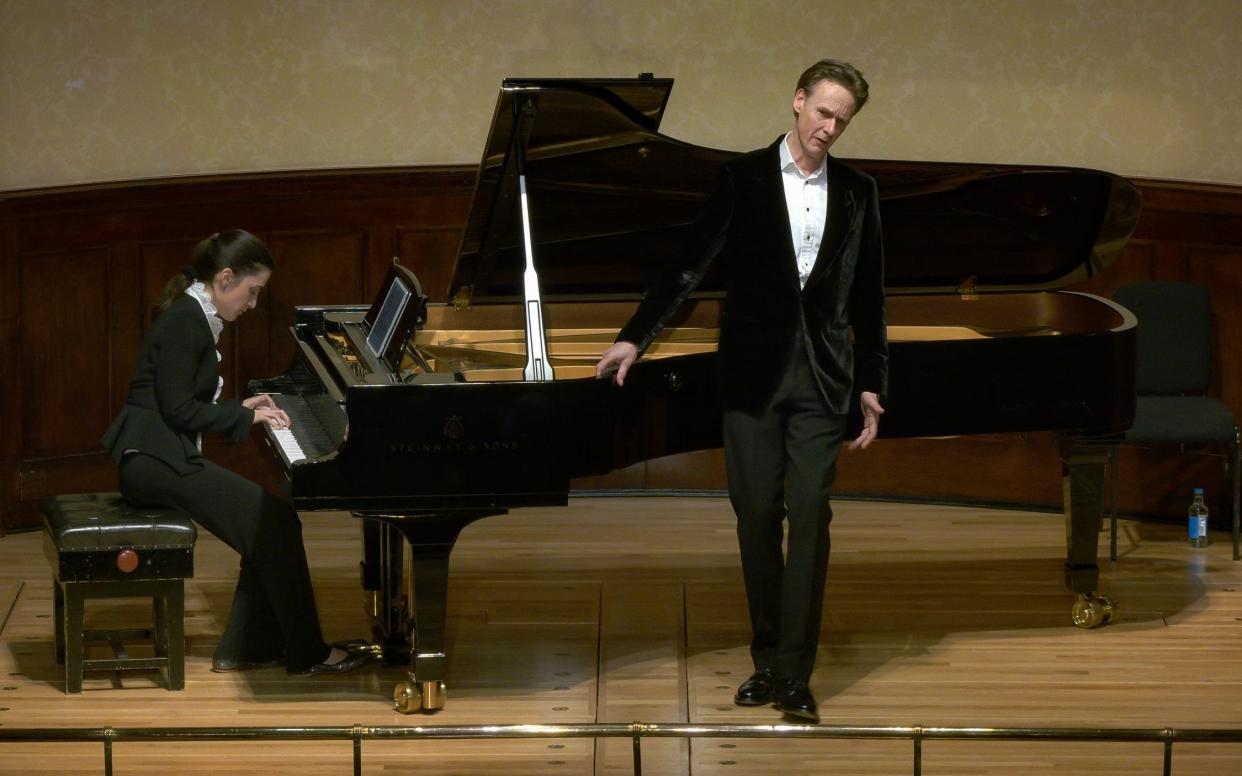
Bostridge was unaware that the City of Birmingham Symphony Orchestra had broken with the traditional no-phones policy and now allows audience members to film its concerts with hand held devices.
But do we really want a sea of phones waving about during classical concerts? Will the snatched films – with their poor sound quality and wobbly images – really be worth the distraction? I asked four musicians for their views…
“Tagging feels like the modern equivalent of getting flowers after a performance”
Esther Abrami, 26
French violinist and artist-in-residence at the English Symphony Orchestra who made her debut at the Royal Albert Hall in 2022
As an artist who has connected with a younger generation of music lovers through social media [Abrami has 421,500 followers on TikTok and 324,000 on YouTube] I’m all for people using their phones in concerts.
Classical musicians are always being told younger people are not coming to see us. If we don’t want the music to die and the concert halls used only for pop then we need to adapt and welcome younger audiences. Many young people have no idea what a classical concert is like. But when their friends share clips online, they think: “Oh that looks cool! I might go to see something like that.” Older people need to accept that we now live in a world where people take pictures or make videos of things they enjoy.
One of the reasons young people get bored in classical concerts is because they don’t feel a part of what’s happening. They’re stuck in their little seats keeping quiet for the whole evening. Compare that to the audience interaction that’s a part of any modern pop concert, where the musicians speak to the audience, encourage them to clap, sing along and wave their phone lights. I’ve played a violin at a concert which mixed classical music with electronic music. During my solo we had people following the rhythm of my playing using the lights on their phones – that’s something they’ll remember because they became a part of the performance.
I did a big concert in a very conventional, classical concert hall in Paris when I released my last album, Cinéma. But the audience took their phones out and it was so lovely to be tagged so many times on social media afterwards. Tagging feels like the modern equivalent of getting flowers after a performance, only concertgoers can show you the particular moments that felt special to them. In this case, I saw people had really loved my new arrangement of the theme from Le Fabuleux Destin de Amélie Poulain and that felt wonderful. While playing, I could hear people leaving their seats, lifting their phones. It was spontaneous, collective. As musicians we want people to feel alive while we play and I felt like the whole hall was connected.
I know this is a controversial view. Some people think phones are disruptive. But most of the time young people use their phones very naturally and respectfully. They don’t stand up with their arms up for the whole show. Younger people want 15-30 second clips because that’s the right length to upload to social media. They know how to turn off the flash and the sound on their phone. It’s never the phone of a young person that rings loudly in concerts – that’s much more likely to be an older person who hasn’t worked out how to put their phone onto silent mode!
Of course we need peace and quiet to appreciate music. But sometimes the atmosphere in classical concerts can feel so tense and constraining that even as a performer I feel scared to move. I sometimes think I’d prefer it if people cough when they need to instead of everybody waiting to cough between movements. Music like this is human expression – let’s not forget the humanity of everybody in the hall.
“You’ll have a better souvenir in your memory if you’ve been able to pay attention”
Steven Isserlis, 65
Multi-award-winning cellist
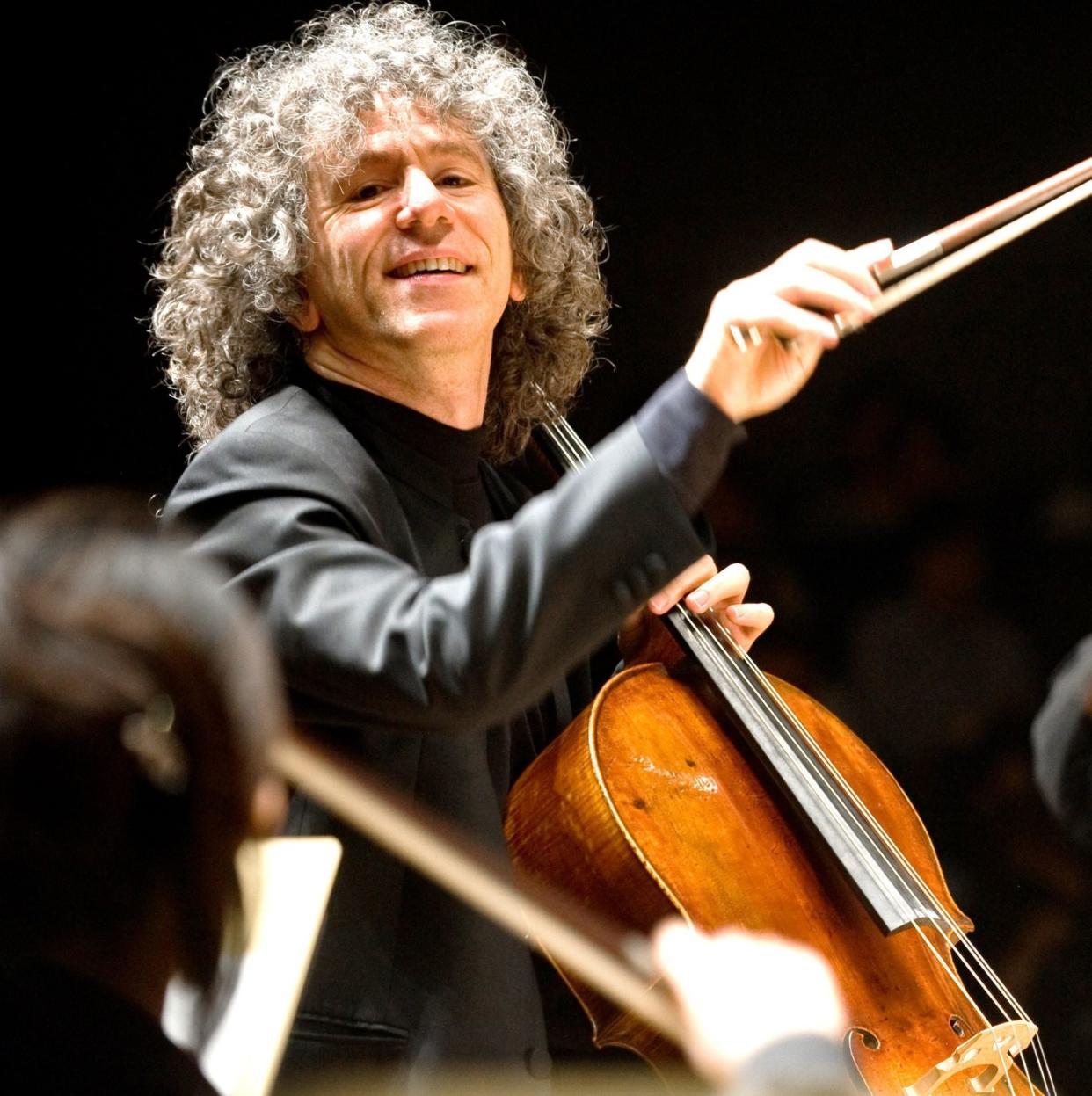
I think Benedict Cumberbatch dealt with this issue very well back in 2015. He was playing Hamlet at the Barbican and stepped out of character to ask the audience to stop filming because it was distracting him and preventing the suspension of disbelief. [Cumberbatch said: “I can see cameras in the auditorium… It’s mortifying and there’s nothing that’s less supportive or enjoyable as an actor on stage experiencing that.”]
I find it very condescending of concert organisers to assume that an audience can’t concentrate or engage unless they’re holding their phones up. You’re meant to be transported into another world by a concert, not yanked constantly into the present by the selfish behaviour of the person two rows ahead of you.
I was playing at a festival in Italy recently and this woman in the front row was pointing her phone camera right at my face in the most off-putting way. At the end of the movement I said to her, “Could you please put your phone away”. I was obviously a little bit annoyed but I don’t think I was rude. At the end the organiser sidled up and said: “What you did was absolutely right. The slight problem is that the woman was our main sponsor.” Oops!
The debate is addressed interestingly in a wonderful new short story by Amor Towles called The Bootlegger [published in Towles’ collection Table for Two, 2024]. It’s about a man called Tommy who gets absolutely livid when he notices an old man recording concerts at the Carnegie Hall. After a fictional concert at which I’m playing the Bach cello suites, Tommy reports the old man to an usher and the man with the recording device is banned from the concert hall. It later turns out that the man was recording the concerts for his bedridden wife and Tommy does feel awful.
I do understand that people want a souvenir of a good concert. But I think you’ll have a better souvenir in your memory if you’ve been able to pay attention. If you must get your phone out, take a picture at the end. I don’t mind at all if people want to record me smiling and taking a bow. That’s fine!
“We’re jumping the gun… we haven’t had a proper conversation about wine”
Daniel Pioro, 38
Violinist and featured artist at the Aldeburgh Festival 2024
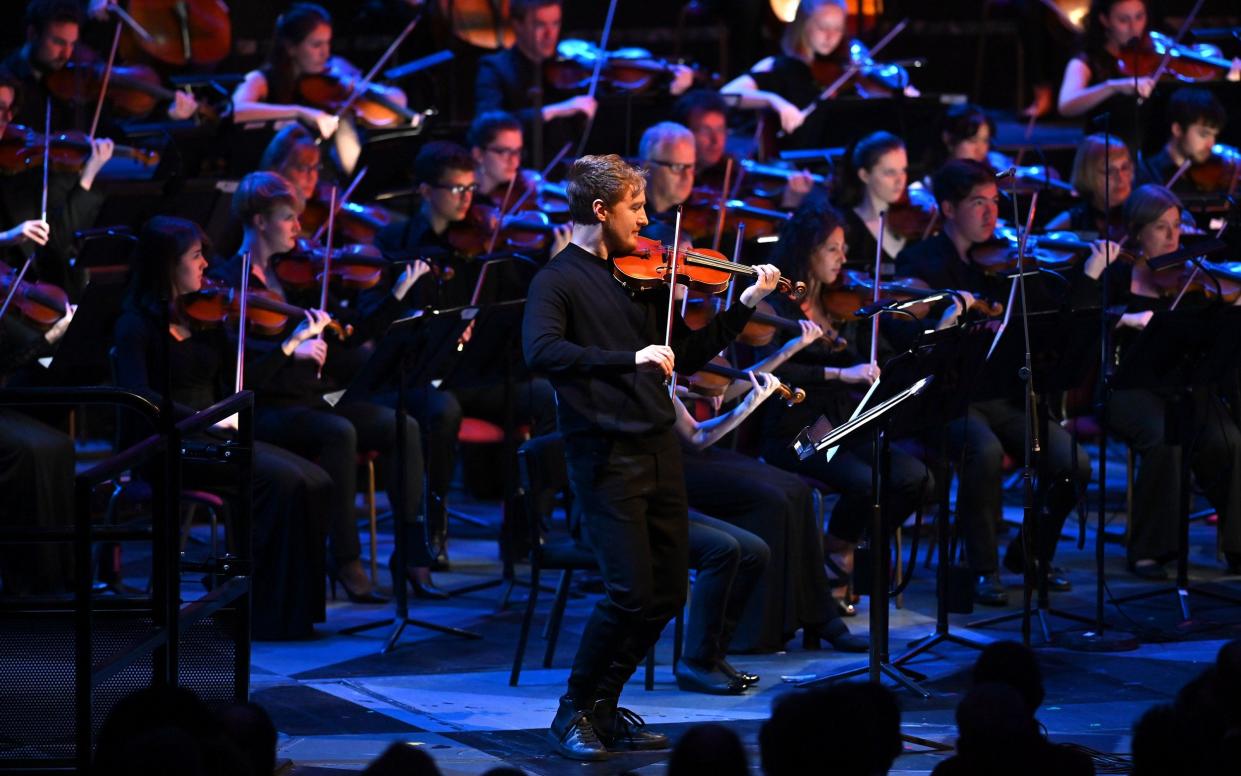
I find the idea of being either for or against filming a concert quite weird. I went once on a trip to Jerusalem and I remember there was an extraordinary prayer happening and I find the idea of anybody whacking out a phone to record this intense spiritual gathering so odd. But not every profound experience is like that. Some profound experiences are loud, busy – full of light and noise and conversation. I have personally ended a concert outside of the South Bank covered in fairy lights and I wish audience members had been allowed to film that because the professional photographs of the event were appalling.
I also feel like the question of filming is jumping the gun. We still haven’t had a proper conversation about whether concertgoers are allowed to have a glass of wine during a performance. I’m not joking. Why shouldn’t you be allowed to sit with a lovely glass of wine at a beautiful concert? It’s such a simple complimentary pleasure. At the Everyman cinema you’re given the option of a table where you have a negroni brought to you to enhance the experience. Lovely! There are programmes I offer at which that would be entirely appropriate and others where it would not be. Yet we’re debating the use of technology before allowing such an ancient pleasure.
I’m planning a concert for St Patrick’s Day 2025 with some extraordinary Irish musicians. The idea that we’d ban mobile phones and drinks from that would be crazy. But then imagine you’re at the Wigmore Hall for a recital. The seats are very close together there and somebody rustling in their pockets, knocking you with their elbow to get out a phone, would leave me personally incensed. Context, nuance and shades of grey are everything in these artistic conversations.
“Clips can make people think: wow! I want to go and try learning that myself now”
Jordan Ashman, 19
Percussionist and BBC Young Musician of the Year 2022
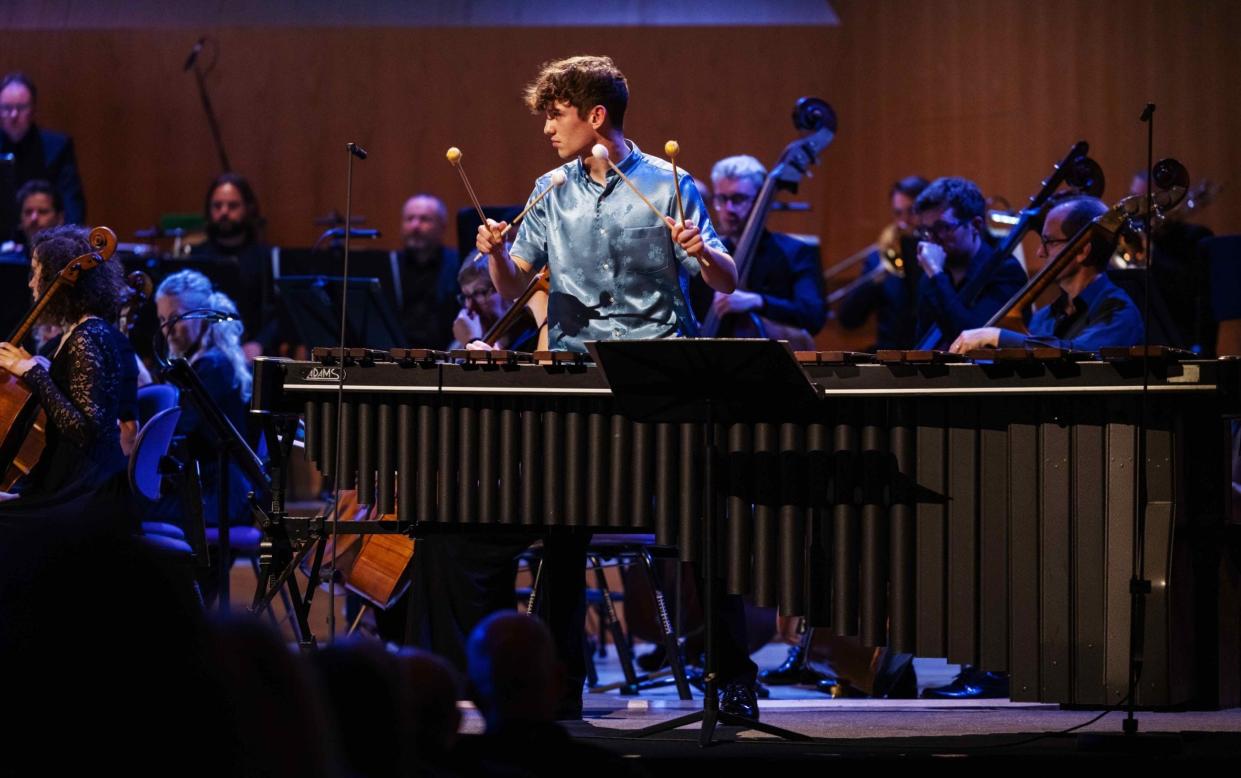
I can see both sides of this debate and my instinct is that it should be up to the performers. When I go to see an orchestra, I want to be able to hear the music properly and I want a clear view of the musicians. People waving phones in your eyeline can really spoil the experience. Also, sometimes when I’ve filmed things I’ve realised I’m not appreciating the experience in quite the same way.
But the whole vibe at classical concerts is changing. For example, musicians didn’t often talk to audiences but now many do talk about what they’re playing. At my own recitals I love having a bit of a chat, a bit of banter between pieces. I want to create a relaxed environment where people can really enjoy the music. I don’t want people to feel like they’ve walked into an exam room! I usually ask a mate in the audience to film recitals for me too because it’s helpful for me to look back at my technique and reflect on my stage presence. I also use those videos to enter competitions.
But I’ve also been really happy to see clips and photos that people have posted of me. As a musician you do need to publicise what you do if you want to be able to keep doing it. It can be really helpful when the audience is helping to promote the concerts on social media.
As a percussionist, I think I’m probably quite interesting to watch. The majority of people have no idea of what the percussion really is. They think of us as just a bass drum and a cymbal lurking at the back of the orchestra. But it’s much more complex and interesting and at times very exciting to watch. So when people film what I’m doing, share it online and tag me, they’re part of educating the wider public about what percussionists do. Those clips can make people think: wow! I want to go and try learning that myself now, or go and experience a concert like that.
In February I performed Robert Honstein’s really joyful, bombastic Juvenalia concerto [2019] with the City of Birmingham’s Youth Symphony Orchestra and I loved all the notifications pinging in afterwards from people telling me how much they’d enjoyed it. As long as phones aren’t flashing or ringing while I’m performing then I’m more than happy to be filmed. Be considerate, have fun and tell your friends!


